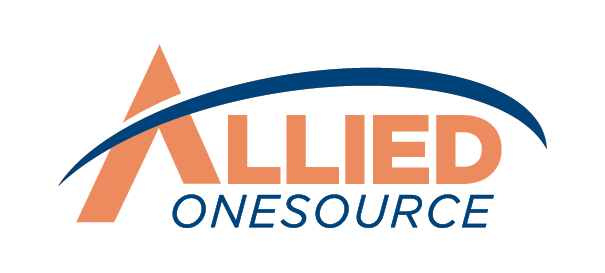The Final Phase What Questions to Ask During the Final Interview
Welcome to the final leg of your applicant search: the last interview. As you gear up for this event, being fully prepped and ready is key. Did you know that nearly 1 in 5 job seekers might consider pulling out of the process if they feel the interviewer isn't prepared? 1 It's true.
Nobody wants to waste time on an unprepared interviewer, especially at this stage. Your preparedness also speaks volumes about your organization. But it's not just about asking the right questions. It's about showing respect for the candidate's time and effort. Below are some tips and tricks to ensure you're set for a successful final interview. This will help snag that ideal candidate for your team.
Make the Right Choice: Final Interview Questions to Ask
The final interview is make-or-break. It's when you need to determine if a candidate truly fits your organization. While resumes and earlier interviews offer a glimpse, this is where you dig deeper. You're not just assessing their skills. It's about whether the candidate would be a culture fit, too.
Read More: Here's Why Soft Skills Matter More in a Digital World
Exploring Problem-Solving Abilities
In any job, tackling tough situations and thinking outside the box is crucial. These questions help gauge candidates' problem-solving and critical-thinking abilities by delving into their past experiences and decision-making processes. Consider asking the following questions:
1. When faced with multiple competing priorities, how do you prioritize tasks and make decisions?
Asking candidates how they prioritize tasks amidst competing priorities provides crucial insights into their organizational skills and decision-making process. It's a window into their organizational skills and decision-making abilities to make informed decisions under pressure. It should contribute positively to the company's efficiency and success.
You should also look at how well they can expand on their answers. An unsatisfactory answer might involve a lack of clear prioritization criteria or a failure to consider the importance and urgency of tasks.
For instance, if a candidate struggles to provide specific examples of how they've managed competing priorities effectively. Or if they prioritize tasks randomly without considering their impact on overall goals. It may indicate a potential weakness in their organizational abilities.
2. What is the most innovative solution you've implemented in your career so far? And what inspired you to pursue it?
This offers insights into their creativity, problem-solving abilities, and drive. It's like peeking into their mindset and approach to challenges. This question matters because it helps you gauge if they can think outside the box, whether they can spot opportunities for improvement and make things happen.
Understanding their motivations behind that solution gives context to their strategic thinking and proactive approach to problem-solving. Think of it this way: You're trying to determine if they're the type of person who can bring fresh ideas and drive positive change to your organization.
Assessing Leadership Potential
Leadership isn't limited to managerial positions. These questions show the candidate's ability to inspire and motivate others, navigate interpersonal dynamics, and make tough decisions when required. Consider asking:
3. How do you handle disagreements or conflict within the team? Can you share when you successfully resolved a conflict?
This question shows their people skills, emotional intelligence, and ability to keep things positive. It helps you see how they handle tough situations, mediate disagreements, and keep the team on track.
Meanwhile, asking for a specific example gives you a clear picture of their real-life conflict resolution skills and how they handle tricky situations with finesse. Think of it as a way to figure out if they're the kind of person who can keep the peace and foster a great team environment.
For example, look for applicants who talk about promoting open communication, finding common ground, and coming up with win-win solutions. On the flip side, watch out for answers that involve avoiding conflicts altogether or blaming others for disagreements.
4. Describe when you had to make a decision that affected your team or organization. How did you navigate through it, and what did you learn from the experience?
It's like seeing how they handle pressure-cooker situations. It helps you see if they can weigh risks, consider different viewpoints, and make tough calls when needed. Understanding how they handled such scenarios and what they took away from them gives you a window into their decision-making style, adaptability, and growth potential.
So, look for candidates who talk about considering all options, seeking advice when needed, and learning from the outcome. Conversely, be cautious of answers that indicate rash decisions, avoidance of responsibility, or failure to learn from mistakes.
Evaluating Adaptability
Today's changing workplace requires adaptability. Workers who can change course rapidly in response to evolving situations are a great asset to any company.
Read More: Skills-Based Hiring in 2024: What Employers Need to Know About the Changing Landscape of Skills
5. Can you recall a time when you had to learn a new skill or technology on short notice? How did you go about acquiring the necessary knowledge?
In today's fast-paced world, learning new things on the fly is essential. Whether it's adapting to changes in technology or taking on unexpected tasks, this skill is invaluable for staying ahead.
Understanding how candidates tackle self-directed learning gives you a sense of their problem-solving skills and drive to keep growing. Plus, it helps you see if they're ready to take on whatever comes their way in your organization.
Keep an eye out for candidates discussing seeking out resources, asking for help when needed, and diving in headfirst. On the other hand, watch out for responses that indicate a reluctance to learn or a lack of initiative in seeking out new skills.
6. How do you handle setbacks or failures in your professional life? Can you share an example when you bounced back from a challenging situation?
In any job, there are going to be ups and downs. Being able to handle setbacks with grace and bounce back stronger is crucial for success. How candidates respond to challenges gives you insight into their problem-solving skills, determination, and ability to keep cool under pressure. It also helps you see if they're the kind of person who can thrive in a fast-paced, demanding environment.
Uncovering Collaborative Spirit
Collaboration is the foundation of successful teamwork and organizational success. To ensure a candidate can fit in with the corporate culture, evaluating their collaborative attitude is critical.
7. Describe a situation where you had to provide constructive feedback to a teammate. How did you approach the conversation, and what was the impact?
Being able to give feedback effectively shows professionalism, empathy, and a commitment to helping others grow. How candidates approach these conversations and the impact of their feedback helps you gauge their potential as a leader and their ability to work well with others.
Effective feedback can lead to improved performance, enhanced morale, and stronger teamwork. On the other hand, poor feedback practices can result in resentment, decreased productivity, and a toxic work environment. So, the right kind of candidate can contribute significantly to a positive and thriving workplace culture.
Read More: 5 Tips To Creating and Implementing an Inclusive Work Environment
ALLIED ONESOURCE CAN HELP YOU FIND THE BEST CANDIDATES
Struggling with final interview questions or unsure how to screen for the best candidates? Let us take the lead in the hiring process.
Allied Onesource specializes in matching exceptional talent with outstanding opportunities.
Send us a message today to kickstart the process of expanding your team with top-notch professionals.
Reference










